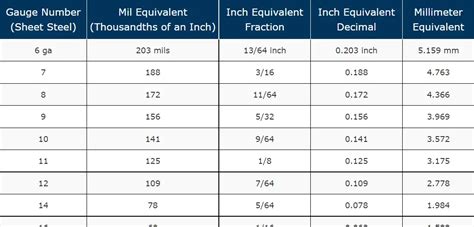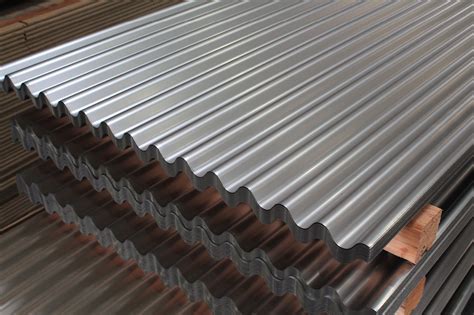26 gauge sheet metal roofing A 26-gauge roof is not only thicker but also heavier than 29-gauge. The added weight gives the roof a greater chance of staying intact in the event of a very heavy wind storm. 26 gauge will out-perform any 29 gauge material. CNC machines utilize advanced technology, including computer programming and automation, to perform precise and accurate manufacturing processes. CNC machines follow a predefined process to remove material from a blank or workpiece, resulting in the production of intricate and complex parts.
0 · metal roofing gauge thickness chart
1 · corrugated steel rated for residential
2 · 29g vs 26g metal roof
3 · 29 ga vs 26 sheeting
4 · 26 gauge steel roofing price
5 · 26 gauge metal siding prices
6 · 26 gauge metal roofing pricing
7 · 26 gauge metal roofing lowe's
Used Bar Grating is a strong alternative for used mezzanine flooring, it allows for air movements, light and water from overhead sprinklers to pass through deck. The standard size openings on bar grate material is 1" x 4".
metal roofing gauge thickness chart
26-gauge metal, and its uses, advantages, and disadvantages. Some specific scenarios and which metal thickness is best for each one. Throughout the industry, 24-gauge .
A 26-gauge roof is not only thicker but also heavier than 29-gauge. The added weight gives the roof a greater chance of staying intact in the event of a very heavy wind storm. 26 gauge will out-perform any 29 gauge material. Discover the pros and cons of 22, 24, 26, and 29 gauge metal roofs, as well as their differences, to help you determine which option best suits your needs. 26-gauge metal, and its uses, advantages, and disadvantages. Some specific scenarios and which metal thickness is best for each one. Throughout the industry, 24-gauge Galvalume is usually the standard thickness for standing seam metal roof and wall systems.
1968 cadillac sheet metal
corrugated steel rated for residential
A 26-gauge roof is not only thicker but also heavier than 29-gauge. The added weight gives the roof a greater chance of staying intact in the event of a very heavy wind storm. 26 gauge will out-perform any 29 gauge material.
26 gauge metal roofing presents a practical, cost-effective solution for homeowners seeking durability without the extra weight and cost associated with thicker gauges. As a thinner option in the world of metal roofing, it is lighter, easier to install, and comes at a more affordable price point.The 26 GA PGH Rib Profile and 26 GA PBR Panels for metal roofing represent cutting-edge solutions for residential and commercial roofing needs. Engineered with precision from durable 26-gauge steel, these panels offer exceptional strength and longevity, ensuring a robust shield against the elements. 26 gauge metal roofing offers a good balance between durability and flexibility. It’s thick enough to withstand most weather conditions, including moderate hail and strong winds, but still flexible enough for easier installation and handling. This balance makes it ideal for a wide range of climates and roofing applications. 2. Cost-Effectiveness. Gauge refers to the thickness of metal roofing and siding panels. Standard gauges for metal products include 29 gauge, 26 gauge, 24 gauge, and 22 gauge, with the smaller number representing the heavier (or stronger) gauge. Each gauge referenced above includes a range of nominal decimal thicknesses.
Property owners choose 26 because: 26-gauge steel is the industry standard for most residential and commercial applications. It’s thicker and more structurally sound than 29, but less expensive than 22 and 24. Cons: Since it’s thinner, it’s not the best option if you live in an area that experiences high winds and other extreme weather conditions.
A 24 gauge metal roof has more strength, is more impact resistant to hail, can handle higher winds, and heavier snow loads compared to a 26 gauge metal roof. If you are installing a metal roof in a milder climate, using a 26 gauge metal is more appropriate.For instance, at Professional Metal Roofing, the metal roofing panels made of galvanized steel are 0.53 mm thick, which corresponds to 26 gauge. This demonstrates how these numbers can differ in GA. across different steel types. Discover the pros and cons of 22, 24, 26, and 29 gauge metal roofs, as well as their differences, to help you determine which option best suits your needs.
26-gauge metal, and its uses, advantages, and disadvantages. Some specific scenarios and which metal thickness is best for each one. Throughout the industry, 24-gauge Galvalume is usually the standard thickness for standing seam metal roof and wall systems. A 26-gauge roof is not only thicker but also heavier than 29-gauge. The added weight gives the roof a greater chance of staying intact in the event of a very heavy wind storm. 26 gauge will out-perform any 29 gauge material.26 gauge metal roofing presents a practical, cost-effective solution for homeowners seeking durability without the extra weight and cost associated with thicker gauges. As a thinner option in the world of metal roofing, it is lighter, easier to install, and comes at a more affordable price point.
1969 buick electra 225 fuse box diagram
The 26 GA PGH Rib Profile and 26 GA PBR Panels for metal roofing represent cutting-edge solutions for residential and commercial roofing needs. Engineered with precision from durable 26-gauge steel, these panels offer exceptional strength and longevity, ensuring a robust shield against the elements.
26 gauge metal roofing offers a good balance between durability and flexibility. It’s thick enough to withstand most weather conditions, including moderate hail and strong winds, but still flexible enough for easier installation and handling. This balance makes it ideal for a wide range of climates and roofing applications. 2. Cost-Effectiveness.
Gauge refers to the thickness of metal roofing and siding panels. Standard gauges for metal products include 29 gauge, 26 gauge, 24 gauge, and 22 gauge, with the smaller number representing the heavier (or stronger) gauge. Each gauge referenced above includes a range of nominal decimal thicknesses.
Property owners choose 26 because: 26-gauge steel is the industry standard for most residential and commercial applications. It’s thicker and more structurally sound than 29, but less expensive than 22 and 24. Cons: Since it’s thinner, it’s not the best option if you live in an area that experiences high winds and other extreme weather conditions. A 24 gauge metal roof has more strength, is more impact resistant to hail, can handle higher winds, and heavier snow loads compared to a 26 gauge metal roof. If you are installing a metal roof in a milder climate, using a 26 gauge metal is more appropriate.

29g vs 26g metal roof

These used file cabinets arrive preserved in very-good condition. QTY: 17. MFG: Steelcase. Model: 900 series. Dimensions: 36", 3 Drawers. Finishes: Gold Dust Mica. Furniture Condition (Star Rating): ★ ★ ★ ★ ☆. Location: Northeast. Lot#: 052717-CNK8. ALL PREOWNED FURNITURE INVENTORIES ARE SUBJECT TO PRIOR SALE.
26 gauge sheet metal roofing|29 ga vs 26 sheeting